
Ahead of the Tokyo 2020 Paralympic Games, Toyota Times reporter Kyonosuke Morita spoke with former International Paralympic Committee President Sir Philip Craven to hear about his thoughts on what to watch during the games.

The Tokyo 2020 Paralympic Games are finally here. As a Worldwide Paralympic Partner, Toyota supports the Games with a focus on mobility. This relationship between Toyota and the International Paralympic Committee (IPC) began in 2015 with the signing of a sponsorship agreement, through which Toyota committed to providing global support for Summer and Winter Paralympic Games and related activities from 2016 to 2024.
The IPC’s president at that time was Sir Philip Craven, who now serves on Toyota’s Outside Board of Directors. Having steered the IPC over the course of 16 years, Craven recalls that President Akio Toyoda’s mindset resonated with him from the outset. In the interview, the former IPC President shared his hopes for the Tokyo 2020 Games, his connection with sport, and the challenges he is tackling at Toyota.
A chance to see “pure sport”

Toyota Times reporter Kyonosuke Morita began by asking about the Tokyo 2020 Paralympic Games, the upcoming sporting celebration in a city still abuzz with Olympic excitement. As IPC President until 2018, Craven had overseen Paralympic Games – how did he feel about the unprecedented situation of holding the Games mid-pandemic?
Morita:
Finally, the Tokyo 2020 Paralympic Games are about to begin. How do you feel right now?
Craven:
I feel really tremendous about the fact that the Tokyo 2020 Olympic and Paralympic Games are going ahead. I think particularly the engine room of that organizing committee has been very effective. We hear about the President and CEO, but those people are making this happen in such difficult circumstances.
I’ve observed the Olympic Games with great interest on television. I always feel the Olympics is a great test event for the Paralympics. I’m sure any problems have been ironed out during the Olympics, and I’m just looking forward to great games in Tokyo in a few days.
Morita’s next question was, “What should we focus on when watching the Paralympic Games?” In the case of the Olympic Games, which crown the world’s best in many popular sports, the highlights are well known. With the Paralympic Games, however, many viewers may be seeing a sport for the first time. For Craven, the event is an opportunity to witness “pure sports”.
Craven:
[I would like people to focus on] two very simple, interconnected things – the athletes and the sports. The pure sports. I don’t think you get better sports than you could ever see at the Paralympic Games.
You will see great athletes performing in Paralympic Games. Just look at Jonnie Peacock, my fellow countryman: 100-meter champion from both London and Rio, going way under 11 seconds for 100 meters and having one prosthetic leg, just unbelievable. You will be amazed by the performances.
Parasports, where all can compete under the same rules
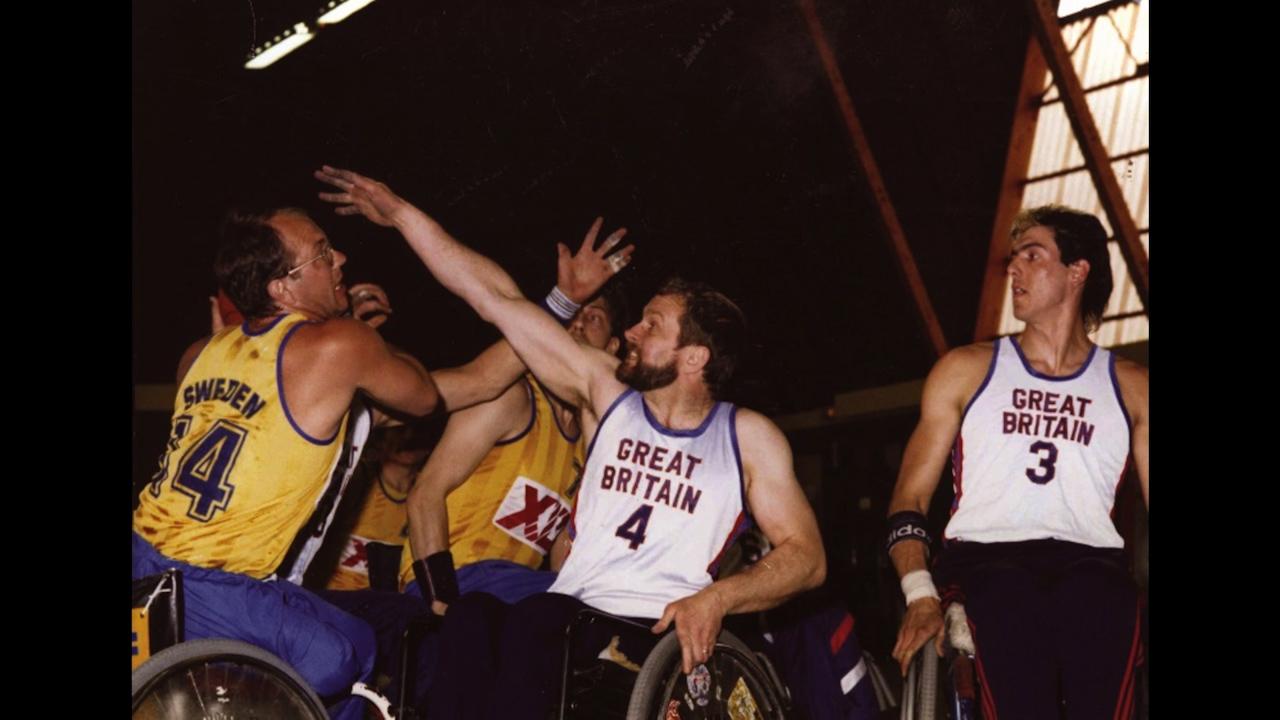
Craven himself is a para-athlete, having represented Great Britain in wheelchair basketball at five Paralympic Games. A unique challenge in parasports is the fact that physical ability varies between athletes. What efforts are needed to ensure that athletes with different levels of disability can compete on the same playing field, under the same rules? Craven drew on the example of wheelchair basketball to explain.
Morita:
I know that the Paralympic Games make various efforts to enable athletes with different disabilities to compete under the same rules – could you give some specific examples?
Craven:
Very good question. Wheelchair basketball is my sport. After retiring as a player, having played nearly 200 games for my country, including several times in Japan, I then got involved in player classification.
Let’s not talk about disabilities, let’s talk about players. Different players on the team have different levels of physical ability. An amputee, for example, has far better sitting balance than somebody like myself that’s paralyzed from the chest down.
So, we have a system whereby the five players on court have a number of points. A single-leg amputee would be a 4.5 points player. I would be 1.5 points player. You have a total of 14 points on court at any one time, so you have to mix players with different levels of physical activity, if I can put it that way, which makes it fair. I’ve been very involved in making sure that the system is alive and well in wheelchair basketball, and of course at the Paralympic Games.
Craven also spoke passionately about the appeal of Paralympic sports. One episode involved the sport of boccia, in which players throw six colored balls as close as possible to a white target ball, or “jack”. These colored balls can be thrown or rolled; in certain classes, players can use devices such as ramps for assistance. An official Paralympic sport, Boccia is accessible to a broad range of people, regardless of physical ability.
In October 2017, an IPC team led by then-President Craven faced off against the Tokyo Governor’s team in a game of boccia, only to be bested by the host team’s surprisingly strong performance. “I suspect they had been practicing for months before playing us,” he recalls with a smile. This anecdote highlights boccia as a sport where people of all ages can compete on a level playing field.
Craven also offered the example of football 5-a-side for athletes with visual impairments.
In 5-a-side football, some of the top teams come from the great football nations – Brazil, Argentina, Portugal, and places like that. You’ll absolutely love it.
How Paralympic Games bring “positive change” to host countries
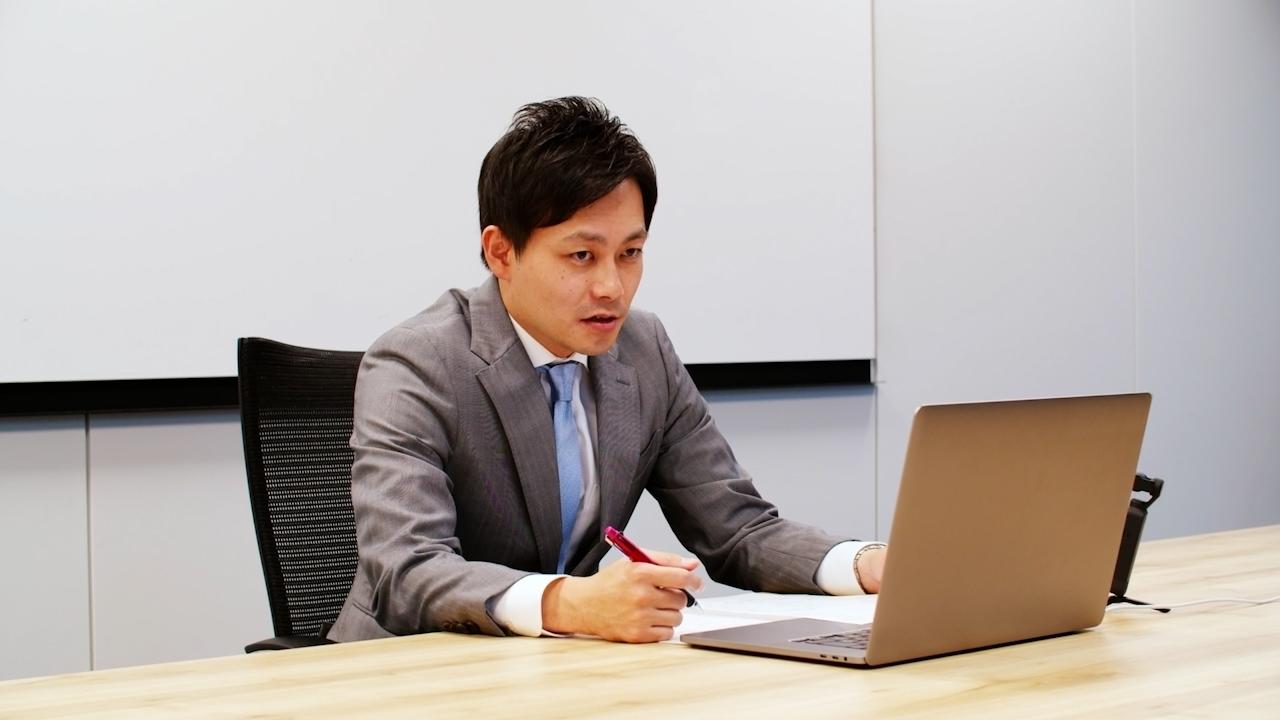
Switching from his on-court role to managing events as IPC President, Craven has remained constantly involved with sport. Drawing on his experience as head of the IPC, he spoke about the effect of the Paralympic Games on host countries and cities.
Craven:
I’d like to highlight two cities, starting with Barcelona in 1992. I was there in my first Games as a non-player because I retired. I went back to celebrate 10 years after the Games in 2002, and the Spanish people, the Catalan people, made amazing changes in those 10 years. The whole center of the city was accessible. I could go anywhere just in my wheelchair, on and off pavements with little ramps.
Similarly, when we were in Beijing in 2008, the Chinese did massive works in Beijing prior to the Games, then they continued those works in all of China’s cities to make the cities more accessible for all.
As Craven went on to explain, the Paralympic Games change more than merely infrastructure – they also spur great change in the hearts and minds of people not only in the host city, but the nation as a whole.
Craven:
Watching the Paralympic Games and seeing the athletes, what they can achieve and perform, moves their minds from a negative view of disability to one of positivity. They start to realize, “Well, if those athletes can do all that, what about myself? Am I going to start my impossible as well?”
Morita:
The Olympic Games can bring attention to minor sports and make them popular. On the other hand, what impact will the Paralympic Games have?
Craven:
I would expect an impact that would be even greater than that at the Olympic Games. I think yes, at the Olympic Games you may see some new sports, and that encourages people to participate.
But here you’ll see completely new aspects of life. Whether you meet with Paralympians through the television screen, or because you are a volunteer at the Games, you’ll be inspired by them.
So, you’ve got this great sport to watch and these wonderful people to get to know. It doesn’t matter what you do, whether you are the president of a major company, like Akio Toyoda, or a volunteer, you will be inspired.
Two organizations sharing the same values
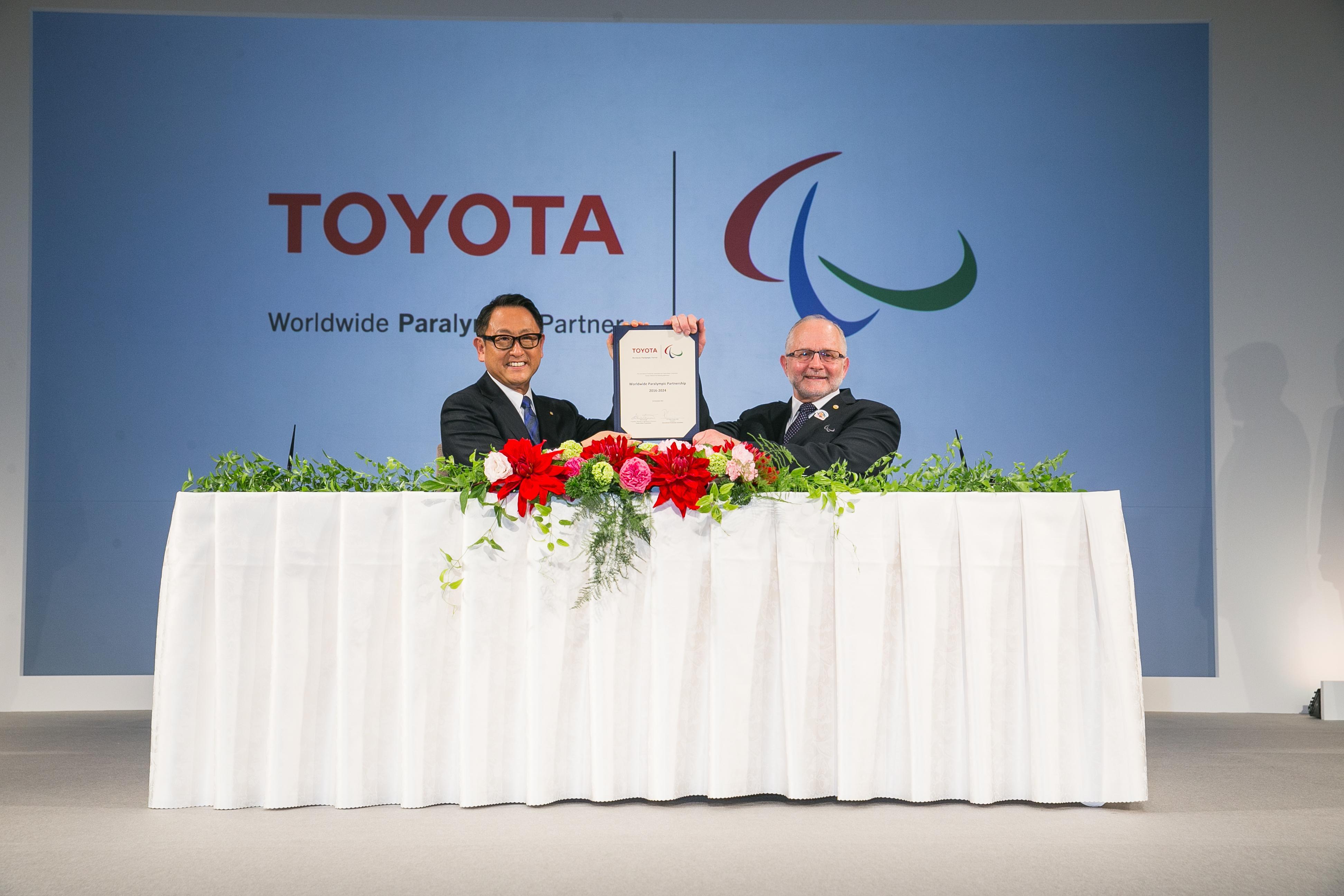
The conversation then turned to Craven’s impressions of Akio. The pair had first met in 2015, when Toyota signed the Worldwide Paralympic Partner agreement with the IPC. As IPC President at the time, Craven shared his first impressions of Akio.
Craven:
The night before we signed our agreement in Tokyo, we had dinner together. I came up with my colleague from IPC in an elevator. The door opened and there was Akio, this smiling face full of energy. I thought, “I can get along with him.” It was this immediate coming together of our joint energies to produce something even better if we work together.
If I may add one more thing, there was this bundle of positive energy that I could now interact with, that was Akio-san. In my life very few people have inspired me, apart from my wonderful wife and family, but here is a man who does inspire me. What is to be inspired? It’s to receive energy from another individual, that will make you move forward and do better things. We clicked, that was it.
In fact, Akio had felt the same way. During the Toyota Times Athletes Now program on August 8, he talked about the first meeting with Sir Philip Craven: “We hit it off right from the start as if we had already known each other for a long time.”
President Toyoda and President Craven. Given their completely different positions, nationalities, and professional backgrounds, what was it that made the pair instantly click? According to Craven, it stemmed from the fact that both had led their organizations with the same vision and shared values.
Morita:
Why did the two of you click? What connected Toyota with the Paralympic Games?
Craven:
Another very good question. What makes us similar? Toyota and the International Paralympic Committee both have a very similar fighting spirit, always thinking how we can contribute to a more diverse and inclusive society. Toyota through mobility, IPC through sports.
I think also that both organizations have an ability to convert negative energy into positive energy to move forward. Both organizations, we never forget where we come from, our roots and core principles. For example, Toyota has the spirit of challenge, genchi genbutsu, kaizen, teamwork, and trust. IPC has its powerful values of determination, courage, inspiration, and equality of opportunity.
While visiting the IPC headquarters in Bonn, Germany in 2016, Akio wrote a message that built on the committee’s slogan of “One World, One Dream, One People” by adding “One Toyota”. When asked by Morita, Craven remembered the episode clearly.
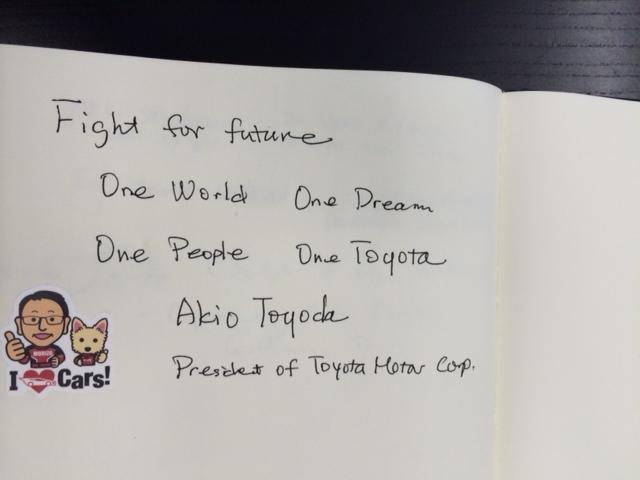
Craven:
During the Games in Beijing in 2008, the strapline was “One World, One Dream.” In the closing ceremony, I added “One People.” I explained the story to Akio-san when he visited our offices. Immediately, he added “One Toyota” and wrote it down on the piece of paper. We still have that piece of paper, and I still have a photograph with that piece of paper.
Start Your Impossible
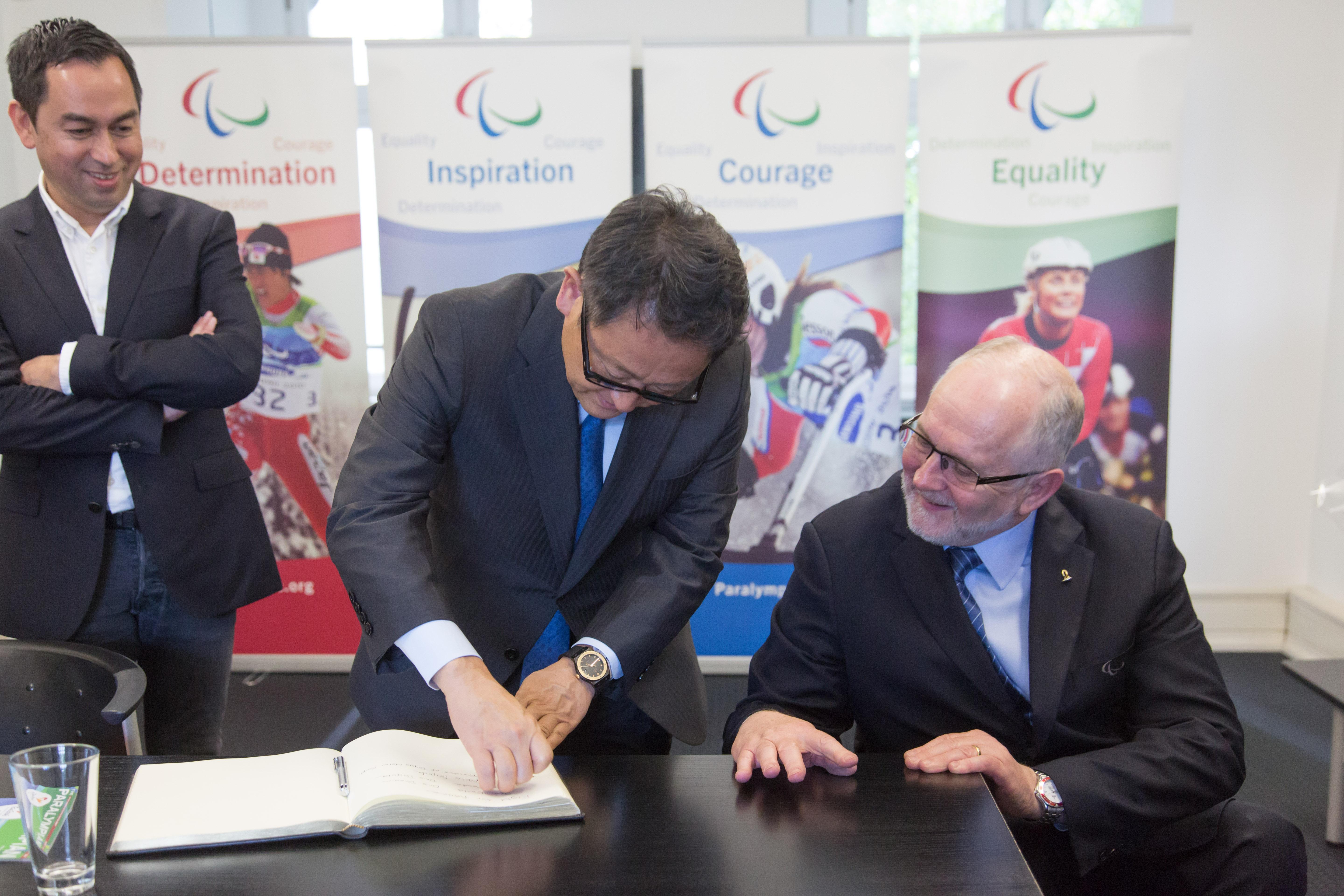
After resigning as IPC President in 2017, the following year Craven became an outside director at Toyota to support the company’s efforts to bring the freedom of movement to all. Having previously devoted his life to sports, what lay behind Craven’s decision to become part of a car company?
Craven:
Every eight months, IPC would have a meeting with Toyota. We had this meeting, then he asked everybody to leave the room except for me, himself and the head of HR. During the meeting, I was asked to be an outside director of Toyota.
Akio started our discussion by saying, “I’m very worried by what you said in the main meeting, because maybe you will not want to become our outside director of Toyota.”
I had said, “When I finish as president, I’m going to do what I want to do.”
I replied, “We can always make an exception to any situation.” I accepted immediately. This turned out to be a wonderful job, our passion. Now, I’ve really fallen in love with Toyota.
This is a new, exciting time of my life. I was always excited by the Paralympic movement and my sport of wheelchair basketball, but now I’m equally excited, if not more so, by where Toyota can move to in the future.
In promoting the Paralympic Games, Craven is dedicated to spreading the freedom offered by sports and the joy of physical activity to all. This desire resonates with Akio’s philosophy of inclusivity and respect for diversity, creating an even more powerful current.
At the end of the interview, Craven shared the following message.
Craven:
All Paralympians are amazing human beings, and they also happen to be great athletes. Paralympians have started their impossible many times during their lives. Onward together with the Paralympians and with Toyota.
Embodying the philosophy that Toyota has set as its global corporate message – Start Your Impossible – that is the Paralympic Games.

